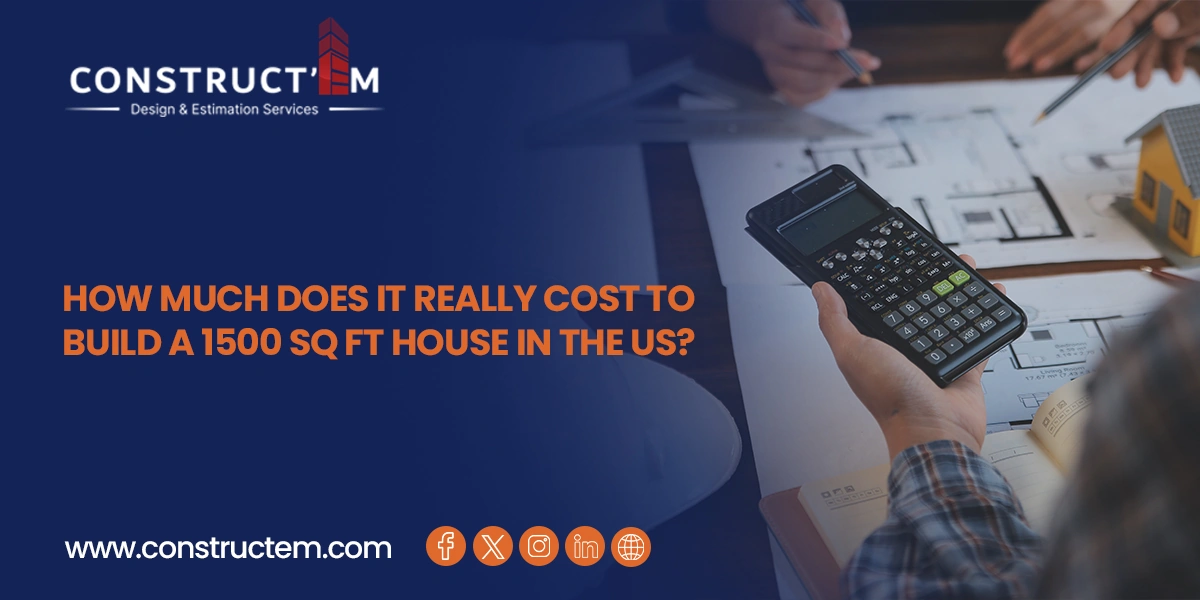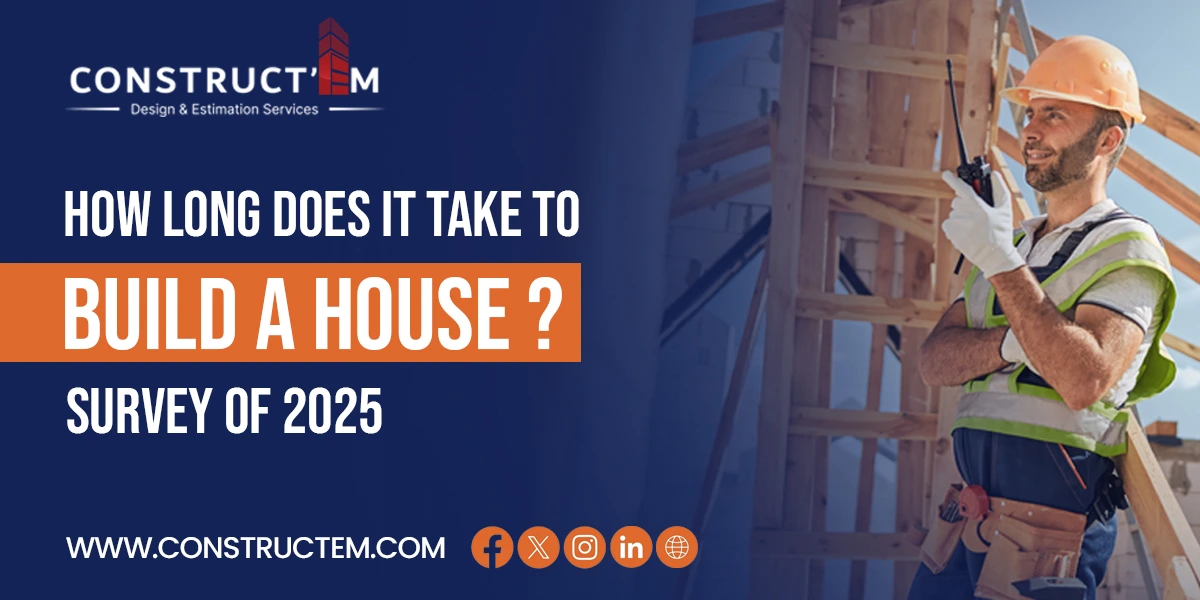

Ever found yourself dreaming about your perfect home, only to wonder: “How long will it actually take to build it?” You’re not alone! With so many stories and guesses out there, it’s easy to get confused, especially with all the recent changes in the housing market and supply chains. But here’s the straight answer, right up front, based on surveys from top home construction estimators in the USA
The national average time to build a new single-family home in 2025 is about 8.1 months, right between 7 and 12 months for most people.
The U.S. Census Bureau reported the historical average was around 7.7 months in 2022, but recent reports and estimator surveys suggest small increases due to labor shortages and longer permitting.
But what goes into that number? And why do some projects fly along, while others hit delays? Let’s break it down.
Building a house involves several big steps. Here’s the typical breakdown:
Total: You’re looking at roughly 7–12 months. Custom designs or large homes will skew longer, while production builders (think: large developments) might finish a home in about 6–7 months.
“Best construction estimating contractor in Los Angeles,” and companies suggest building a typical home often takes closer to 9–12 months, mostly due to longer permit waits and busy contractor schedules compared to the national average.
| House Type | National Avg Build Time | Los Angeles Avg | Typical Range |
| Production home (subdivision) | 6–8 months | 7–9 months | 5–10 months |
| Custom single-family (2000 sq ft) | 9 months | 10–12 months | 8–14 months |
| Large luxury/complex custom | 12–16 months | 14–18 months | 12–20+ months |
Data sourced from Home Construction Estimators in the USA 2025 survey, combined with recent Census and regional contractor reports.
Did you know? The best construction estimating contractor in Los Angeles often adds a 15–20% time buffer to account for permit delays and subcontractor demand.
Let’s say you want to build a 2,000 sq ft, mid-range single-family home. If this is your first experience, here’s a likely timeline:
8 months (national average), expect 10 months in Los Angeles, mostly due to the longer permit process.
Know more about 7 Real Case Studies: What It Actually Costs to Build a Home in California
A: Nationally, about 7–12 months is standard for a single-family home in 2025. Simple (production) homes can be built in as little as 6 months, while custom homes may take over a year.
A: A typical 2,000 sq ft home takes around 8–10 months on average from permit to move-in. It might stretch to 11–12 months in busier markets or with custom features.
A: Only under rare circumstances! Some mass-produced modular homes or developments in rural areas can be done in 3–4 months, but this is NOT typical for most custom or urban builds, especially in cities like Los Angeles.
A: It depends. Building can be cheaper if you already own land and choose standard designs, but recent data show median build costs ($363,000 national average) often match or exceed similar-sized ready-built homes.
A: From permits to final move-in, the typical timeline in 2025 is approximately 8–12 months for most new single-family builds.
A: As of the 2025 market, the gap is smaller than ever; new builds and existing homes have similar costs in many regions. This balance can shift quickly, so always check local price trends with a trusted estimator or real estate agent.
A: With inflation and labor costs in 2025, $100,000 would likely cover a small cottage or tiny home (about 400–800 sq ft) in lower-cost rural areas, excluding land. In high-cost locations, this budget may cover just the shell or renovation, not a ground-up build.
© Construct'EM - 2026. All rights reserved.